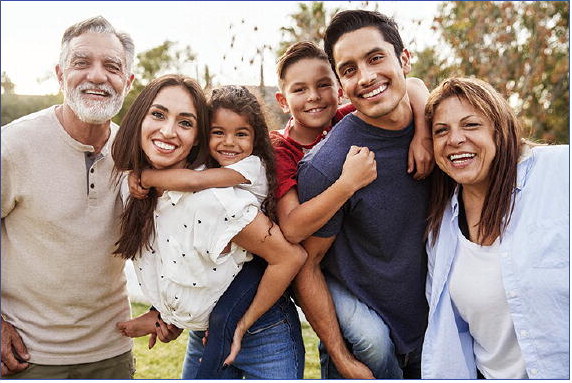The complicated link between genetics and cancer


Few, if any, families have not been affected by cancer. Estimates based on data from the International Agency for Research on Cancer suggested that 19.3 million new cancer cases were diagnosed in 2020, which reflects the far-reaching impact cancer has on people across the globe.
With so many instances of cancer across the globe, it's no surprise that some families include more than one person who has had cancer. As a result, it's not uncommon for some people to feel as if cancer runs in their family. Such a conclusion may not be entirely off-base, but it's also not entirely accurate.
Why do some cancers seem to run in families? The American Cancer Society notes that various factors may make it seem as though certain types of cancer run in families. For example, family members may share certain behaviors, such as poor diet, that can increase their risk for obesity, which in turn increases their risk for various diseases, including cancer. In such instances, it's not the family's genes that are the risk factor for cancer, but rather the shared poor diet. Other commonalities within families, such as smoking, can increase cancer risk, even if the families do not have a genetic predisposition to cancer.
Do genes ever affect cancer risk? The ACS notes that some cancers are caused by abnormal genes being passed along from generation to generation. In such instances, the cancer is not inherited, but an abnormal gene is. However, such instances are somewhat rare, as the ACS reports only about 5 to 10 percent of all cancers result directly from gene defects inherited from a parent. These gene defects are called mutations.
What are inherited gene mutations?
According to the ACS, an inherited gene mutation is present in the egg or sperm cell that formed the child. When an egg is fertilized by sperm, it creates one cell. That one cell then divides many times, eventually becoming a baby. Since all of the cells that eventually form come from that first cell, the inherited gene mutation is present in every cell. That's why it's possible for gene mutations that lead to cancer to be passed down from generation to generation.
How do people know if a family cancer syndrome affects their families?
The ACS notes that cancer is a common disease that roughly one in three people in the United States will develop during their lifetimes. So even if two family members develop the same type of cancer, that does not necessarily mean a family cancer syndrome is present. However, the ACS reports that certain factors make it a family cancer syndrome more likely. Those factors include: Many cases of the same type of cancer, especially if it is an uncommon
or rare type of cancer Cancers occurring at younger ages than usual. Age is a risk factor for many types of cancer, but the average age of diagnosis tends to be in adult- hood. Many young people in the same family being diagnosed with a cancer that is most often diagnosed in older adults is a potential indicator of a family cancer syndrome.
More than one type of cancer in a single person, such as a woman with both breast and ovarian cancer Cancers occurring in both of a pair of organs, such as both eyes, both kidneys, or both breasts More than one childhood can cer in siblings, such as sarcoma in both a brother and a sister Cancer occurring in the sex not usually affected, such as breast cancer in a man Cancer occurring in many gen erations, such as in a grandfather, father and son The relationship between genetics and cancer is complicated. More infor mation is available at www.cancer.org.








